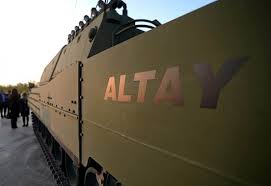Japan, Turkey agree on trade, nuclear power tie-ups

Hürriyet Daily News | 7 January 2014
Japan, Turkey agree on trade, nuclear power tie-ups
Japan and Turkey agreed on Jan. 7 to begin talks on an economic partnership agreement, part of a drive to build closer ties as they also step up cooperation on nuclear technology.
Japanese Prime Minister Shinzo Abe and his Turkish counterpart, Recep Tayyip Erdoğan, agreed during talks in Tokyo to launch negotiations on the partnership pact.
We agreed to start inter-governmental negotiations on an economic partnership agreement,” Abe told reporters.
Erdoğan added that “we will make efforts toward an early completion of the talks”, saying the nations’ $4.0 billion annual trading relationship “doesn’t match the potential of either country”.
The two sides also signed an agreement to set up a science and technology university in Istanbul which is expected to facilitate technology transfers and help Turkey build expertise in nuclear energy. Japan pledged support for the project in May.
Abe and Erdoğan also agreed to push for faster approvals for construction of a $22 billion nuclear plant involving Japan’s Mitsubishi Heavy Industries and Areva of France.
Since taking office just over a year ago, Abe has sought to raise Japan’s global profile, build economic ties and drum up business for major Japanese corporations. He jokes that he is the country’s top salesman.
Turkey is modernizing its infrastructure and energy sector and thus is a key market for major Japanese industrial groups such as Mitsubishi and Sumitomo. Japanese exports of vehicles, electronics and energy equipment gave it a trade surplus of about $3 billion with Turkey in 2012.
However, Japan’s $1 billion cumulative investment in Turkey is a tiny fraction of total foreign investment.
“Both sides recognize that this is not realizing our full potential,” Erdoğan said.
Japanese media reported that Japan and Turkey also are discussing joint development of motors for tanks in what would be a rare defense-related project for Tokyo, whose military technology collaboration is mostly limited to its close ally, the United States.
The Kyodo News agency said Erdoğan was hoping to win agreement on that project, which would involve Mitsubishi Heavy Industries working on a motor for Turkey’s Altay tank.
Turkey is also seeking deals with Fuji Heavy Industries and Kawasaki Heavy Industries to develop other equipment, such as a helicopter motor, a drone, infrared sensors, and a fuel battery system for vessels and submarines, it said.
Erdoğan is trying to acquire nuclear and other technologies from abroad to promote economic growth, which has underpinned his more than 10-year-long administration.
Current account-deficit no threat to economy
Erdoğan meanwhile blamed Ankara’s widening current-account deficit on large gas and oil imports and said the gap would not pose a threat to the country “for the next four or five years.”
“We have natural gas and oil, which is imported,” Reuters quoted Erdoğan as saying.
The gas imports are “causing this current-account deficit,” he said through an interpreter. “It’s not because of what the government has done.”
The deficit in Turkey’s current account - the broadest measure of trade in goods and services - widened to $51.9 billion in the first 10 months of 2013 from $39.6 billion a year earlier.
Erdoğan also said that Turkey is working on hydropower, thermal and renewable energy sources to tackle the current-account deficit. “For the next four or five years we believe that this current account deficit will (not) be a threat for us. It has never been a threat for our economy,” Erdoğan said.
The Turkish premier is on a three-day visit to Japan, accompanied by more than 100 businessmen, aimed at boosting economic ties with Tokyo.





